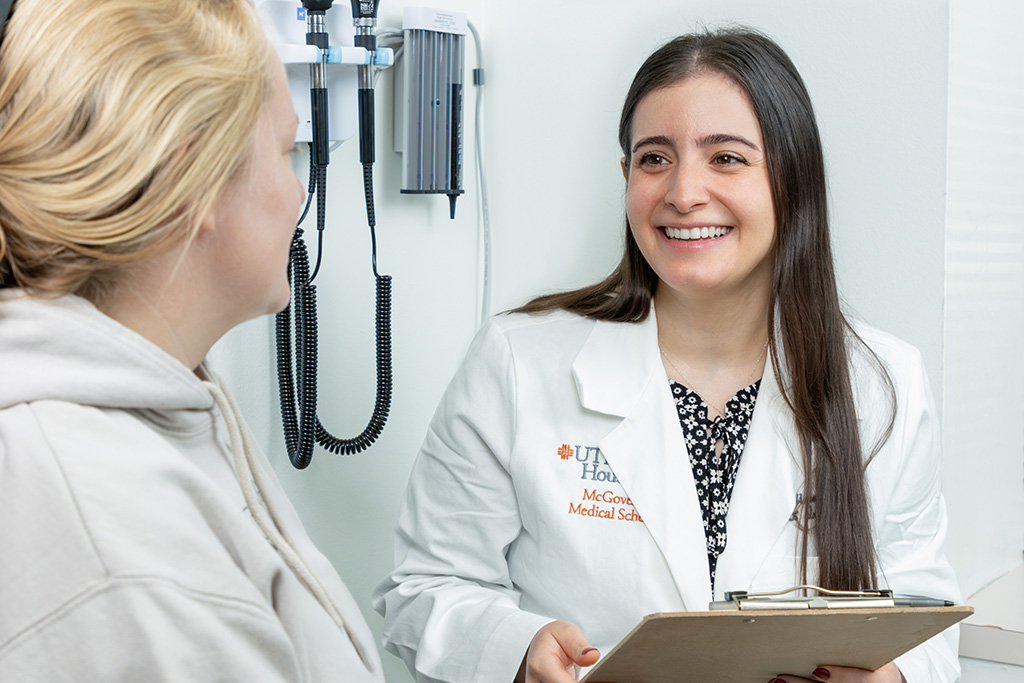UT Physicians allergists and immunologists are trained to diagnose, prevent, treat, and manage conditions that affect the immune system, including allergies, asthma, and immunodeficiency disorders.
Our specialists can help identify triggers or perform tests to pinpoint specific allergens and develop an action plan, which may include lifestyle changes and avoidance strategies that can cause serious reactions.
Our goal is to help patients find relief and enjoy an improved quality of life by delivering personalized solutions, medication management, and immunotherapy to help improve your breathing, congestion, and infections.
Conditions commonly treated:
- Aspirin-exacerbated respiratory disease (AERD)
- Allergic conjunctivitis
- Allergic rhinitis (hay fever)
- Anaphylaxis
- Angioedema
- Asthma
- Atopic dermatitis
- Chemotherapy reactions
- Drug allergies
- Eczema
- Environmental allergies
- Eosinophilic disorders
- Eosinophilic esophagitis
- Food allergies
- Hives (urticaria)
- Immunodeficiencies
- Insect sting allergies
- Latex allergies
- Mastocytosis
- Nasal polyposis
- Sinus infections
- Venom allergy
Procedures and evaluations:
Various evaluations are provided to diagnose and manage different conditions. Our approach is personalized, and we collaborate closely with each patient to create effective treatment plans. Here are some common procedures we offer:
Allergy Skin Testing
- Skin tests help identify specific allergens (such as pollen, dust mites, or pet dander) that trigger allergic reactions.
- These tests are essential for diagnosing allergic rhinitis, food allergies, and insect allergies.
Patch Testing
- Patch testing is used to diagnose allergic contact dermatitis. Small disks or chambers containing various chemicals are applied to the skin for several days.
- It helps determine the cause of skin reactions due to contact with substances like metals, fragrances, or preservatives.
Spirometry
- Spirometry assesses lung function by measuring how much air you inhale and exhale and the speed of exhalation.
- It aids in diagnosing and managing conditions such as asthma.
FeNO test (exhaled nitric oxide testing)
- The FeNO test measures lung inflammation by assessing nitric oxide levels.
- It is particularly useful for monitoring asthma and assessing airway inflammation.
Immunotherapy (allergy shots)
- Allergen immunotherapy gradually desensitizes the immune system to specific allergens.
- It’s an effective long-term treatment for allergic conditions.
Drug desensitization
- For patients with drug allergies, desensitization protocols allow safe administration of medications they’re allergic to.
- This is crucial for managing conditions like aspirin sensitivity syndromes.
Intravenous and subcutaneous immunoglobulin (IVIg) and (SQIg)
- Immunoglobulin replacement is used to treat immunodeficiency disorders and provides antibodies to boost the immune system.






